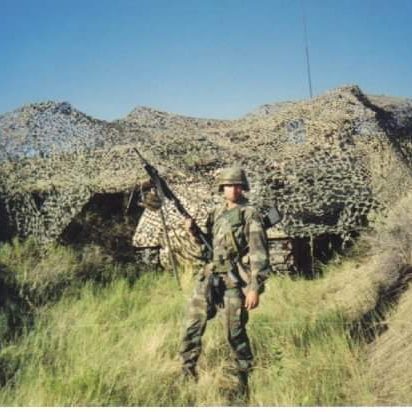
Dr. Hughes is a Professor in Arizona State University’s College of Health Solutions. An economist by training, his research focuses on the roles of technology, innovation, and incentives in the delivery and usage of health care services – with a specific focus on exploiting large scale data to examine contemporary health policy issues. Dr. Hughes earned a Ph.D. in Economics from the University of Georgia and a B.S. in Economics from the Georgia Institute of Technology.
My Path to an Academic Career in Health Policy
I have a very non-traditional background for a professor. I’m a first-generation college graduate that initially didn’t see a pathway to college when I graduated from high school.
My thoughts were, “I could become a construction worker like everyone else in my family, or I could pursue a career as a **rock star** since a construction job would always be available if I failed.”
That was it. The whole life plan.


Alas, I did not become a famous rock star! After a few years of playing professionally in Atlanta’s vibrant music scene, I saw the writing on the wall and found myself in the U.S. Army which opened a wealth of new opportunities. After 3 years of active duty, I let Uncle Sam pick up the bill for a college degree.
After graduating with a B.S. in Economics from Georgia Tech, I spent a few years in Boston working in consulting. My position largely provided technical analysis for government policymakers and senior staff involved in acquiring large systems that required the research and development of new technologies. I’m sure you’ve all seen a movie or two where the government reaches out to “Dr. Z, expert in nano-plasma-neuro-whatever”. I learned very quickly that I would need to become a “Dr. Z” if I wanted to move forward in a career as a policy expert. This led me to the University of Georgia to pursue a Ph.D. in Economics.
A typical Ph.D. contains 2 years of coursework and another 2-4 years to complete your dissertation (or “book” as my mom would say). I returned to the policy world as soon as I had finished my coursework and completed my dissertation at night while working at a Washington DC-based think-tank. This not-for-profit organization provided senior level policy analysis across the full spectrum of federal agencies, allowing me to support a wide range of clients to include the FAA, NASA, DoD, and NOAA.

One of my clients wanted me to present my research on a non-parametric estimator I was developing for a specific class of recursive geometric processes at a national conference. To my surprise, it won best paper in its conference track and was nominated for a prize awarded to the best military operations research paper of the year. Although I did not win, it opened my eyes to the prospect of an academic career where I could spend more time on my research and following through to publication – rather than just producing slide decks and technical reports for clients.
As an academic, I have held full-time faculty positions at the University of South Alabama, University of Oklahoma, and the Georgia Institute of Technology before joining ASU in January 2023. During graduate school, I specialized in econometrics and industrial organization without any specific applied area of focus, i.e., I’m a pure quantitative methods person at heart. This has allowed to examine a very diverse range of problems in my career. However, after a few years in my first academic job, a friend reached out for some help on a project related to U.S. health care.
NONE OF IT MADE ANY SENSE!
And this has kept me working in health care ever since. 😅
Because I am passionate about conducting research that has practical policy applications, I always keep a foot in the policy world whether through federal grants, consulting, or occasionally taking a break from academia to directly work in policy.
Among my proudest accomplishments was spending several years between OU and Georgia Tech building a new Washington DC-based health policy think-tank, the Harvey L. Neiman Health Policy Institute (recently celebrating its 10th anniversary). It was exciting to be the first employee and endowed with a budget and a mission to build an impactful policy research organization from scratch. Perhaps more important than the real policy changes achieved, was being able to hand off the baton of a smooth-running organization when I felt it was time to return academia.
TLDR: After many years researching health policy, I still wake up excited each day to work with academic, government, NGO, and industry stakeholders to develop sensible, sustainable health policy – and to train the next generation of policy makers and researchers.